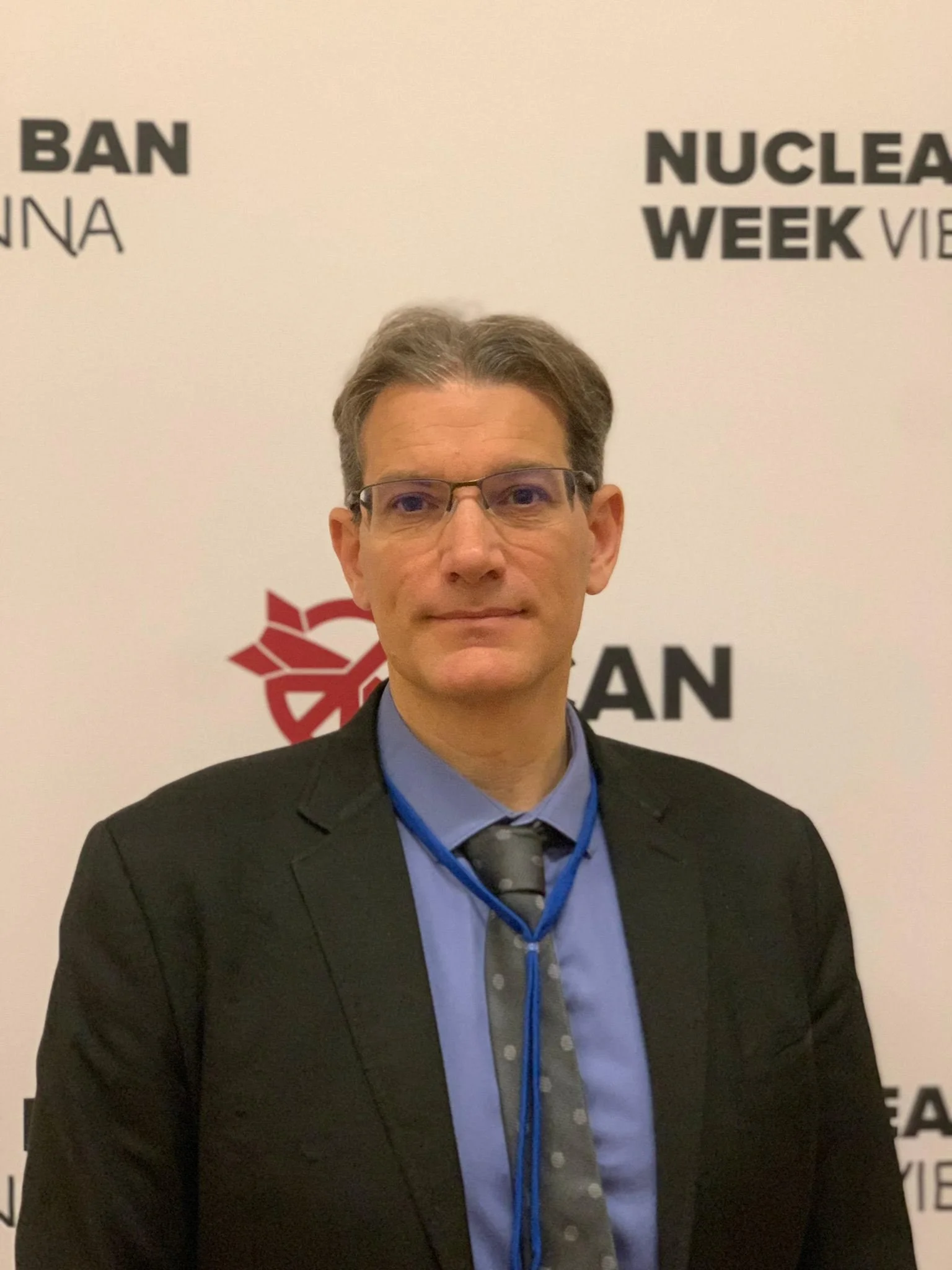Nuclear Realities: Navigating Diverging Perspectives in the EU in Times of Crisis
Public Session
04:00pm, 25th May 2024
In the midst of ongoing global crises, such as the conflict in Ukraine, the traditional discourse surrounding nuclear deterrence reemerges, prompting questions about the relevance of feminist foreign policy in navigating the complexities of a nuclear world. This panel aims to delve into these pressing issues, with a specific focus on the role of the European Union and the nuanced perspectives within its member states regarding nuclear deterrence. We seek to unravel the apparent contradictions between feminist principles and realpolitik, shedding light on their implications for nuclear governance and peacebuilding efforts. By scrutinizing the EU's stance, we aim to challenge superficial narratives and advocate for a more nuanced understanding of feminist engagement in nuclear policy.
Moderated by Lena Wittenfeld
Lena Wittenfeld (she/her) graduated with a Master's degree in "Democratic Governance and Civil Society" at the University of Osnabrück. Since September 2023, she works as a research associate at the University of Bielefeld and writes her dissertation on Feminist Foreign Policy.
Her research focuses on topics at the intersection of Political Theory, International Relations and Gender and Queer Studies including feminist International Relations, (feminist) foreign policy, critical feminist theories, and intersectional as well as postcolonial feminisms. In cooperation with SIPRI, Lena was part of the Alva Myrdal Centre for Nuclear Disarmament’s working group on Nuclear Disarmament in Policy and International Law in 2023 and contributed a paper on Feminist Foreign Policy.
Lena also serves as co-program director of the ‘Gender and International Politics’ program at Polis180 e.V. Currently, she holds a Sylke-Temple Fellowship critically examining Feminist Foreign Policy in times of geopolitical crises’ and was a YSC Fellow 2023/2024.
Speakers
-

Alexander Sorg
Postdoctoral researcher at Sciences Po
Alexander Sorg is a postdoctoral researcher at Sciences Po and a research fellow at the Hertie School’s Centre for International Security. His research interests include nuclear weapons, surveys, and citizens' willingness to fight. He has published in International Studies Quarterly, NATO Defense College Research Papers, and contributed opinion pieces to War on the Rocks as well as various German and Dutch newspapers.
-

Jean-Marie Collin
Director of ICAN France
Jean-Marie Collin is the current Director of ICAN France (branch of the International Campaign to abolish nuclear weapons, Nobel Peace prize 2017). His area of expertise covers arms control, nuclear deterrence, non-proliferation, disarmament, and consequences of French nuclear test. For ICAN France he participated in all processes (2010/2016) of the humanitarian initiative and in the negotiation of the Treaty on the Prohibition of Nuclear Weapons (TPNW). He is also part of the working group on victim assistance / environmental remediation set up by ICAN and which worked with TPNW States during the intersession period. He has published numerous articles and policy papers about humanitarian initiatives, the Ban treaty, consequences of nuclear tests and books on nuclear disarmament.
He possesses vast experience as consultant for various Frenchs NGO’s (Observatoire des armements, Mayor for Peace France, Handicap International, Greenpeace France, …) and foreign NGO/think tanks (GRIP, Norwegian People’s Aid, Inter-Parliamentary Union, …), furthermore, he currently serves as a visiting professor (since 2021) at Sciences Po School of Rennes and Strasbourg, where he teaches international law and nuclear weapons and advocacy.
-

Dr. Tetiana Melnyk
Accredited Parliamentary Assistant and Head of the Office to the Polish Member of the European Parliament Marek Balt.
Dr. Tetiana Melnyk is an Accredited Parliamentary Assistant and Head of the Office to the Polish Member of the European Parliament Marek Balt. She is also affiliated to the Odessa Center for Nonproliferation (OdCNP) as a Non-resident Fellow. Tetiana holds a Ph.D. in Political Sciences (2021) on the topic “Nuclear deterrence in the Euro-Atlantic security system”, MA degree in EU International Relations and Diplomacy Studies from the College of Europe (2018) and MA degree in International relations, Odessa I.I. Mechnikov University(2015). Ms. Melnyk is part of the Young Generation Leadership Network and Black Sea Women in Nuclear network. Her scientific interests include: Nuclear deterrence, weapons, strategy and policy; arms control, nonproliferation, and disarmament in conjunction with European and Euro-Atlantic security; EU transition to green energy and climate neutrality. She speaks Ukrainian, English, French, Russian, Polish and some Turkish. Tetiana loves traveling and doing yoga. -

Valery Kavaleuski
Deputy Head and Representative for Foreign Affairs in the United Transitional Cabinet of Belarus
Valery Kavaleuski is Deputy Head and Representative for Foreign Affairs in the United Transitional Cabinet of Belarus chaired by Sviatlana Tsikhanouskaya. He formulates foreign policy strategy and priorities, develops and coordinates their implementation, conducts diplomatic activities on a bilateral basis and in international organizations. Kavaleuski leads on the flagship project of national passport and oversees missions to Brussels and Kyiv. In the national diplomatic service of Belarus (1998-2006), Kavaleuski specialized on bilateral relations with the US and then worked on human rights agenda with the UN institutions, was posted in the embassy to Washington, DC to cover political issues (2001-2004). Prior to joining Tsikhanouskaya’s team in December 2020, Kavaleuski worked in the World Bank Group in Washington, DC (2016-2020). He graduated from the Belarusian State University (1998) (BA in international relations) and Georgetown University School of Foreign Service (2014) (MS in Foreign Service).


